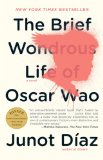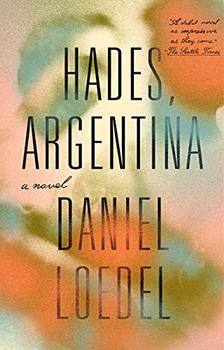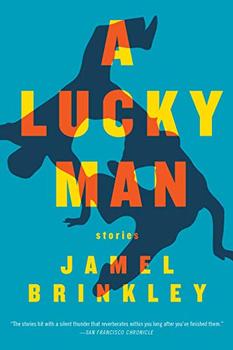Summary | Excerpt | Reading Guide | Reviews | Beyond the book | Read-Alikes | Genres & Themes | Author Bio

A Novel
by Junot DiazThings have never been easy for Oscar, a sweet but disastrously overweight, lovesick Dominican ghetto nerd. Oscar dreams of becoming the Dominican J. R. R. Tolkien and, most of all, of finding love. But he may never get what he wants, thanks to the Fukœ - the curse that has haunted Oscar's family for generations.
This is the long-awaited first novel from one of the most original and memorable writers working today.
Things have never been easy for Oscar, a sweet but disastrously overweight, lovesick Dominican ghetto nerd. From his home in New Jersey, where he lives with his old-world mother and rebellious sister, Oscar dreams of becoming the Dominican J. R. R. Tolkien and, most of all, of finding love. But he may never get what he wants, thanks to the Fukœ-the curse that has haunted the Oscar's family for generations, dooming them to prison, torture, tragic accidents, and, above all, ill-starred love. Oscar, still waiting for his first kiss, is just its most recent victim.
Diaz immerses us in the tumultuous life of Oscar and the history of the family at large, rendering with genuine warmth and dazzling energy, humor, and insight the Dominican-American experience, and, ultimately, the endless human capacity to persevere in the face of heartbreak and loss. A true literary triumph, The Brief Wondrous Life of Oscar Wao confirms Junot Diaz as one of the best and most exciting voices of our time.
one
GhettoNerd at the End of the World
1974-1987
the golden age
Our hero was not one of those Dominican cats everybody’s always going on about -
he wasn’t no home-run hitter or a fly bachatero, not a playboy with a million
hots on his jock.
And except for one period early in his life, dude never had much luck with the
females (how very un-Dominican of him).
He was seven then.
In those blessed days of his youth, Oscar was something of a Casanova. One of
those preschool loverboys who was always trying to kiss the girls, always coming
up behind them during a merengue and giving them the pelvic pump, the first
nigger to learn the perrito and the one who danced it any chance he got.
Because in those days he was (still) a “normal” Dominican boy raised in a
“typical” Dominican family, his nascent pimpliness was encouraged by blood
and friends alike. During parties - and there were many many parties in those
long-ago seventies days, ...
As we flip back and forth, character to character, narrator to narrator, Diaz's prose-dance continues to dazzle as the story takes on greater weight as the history piles on – but it's not just dazzling for the sake of the dazzle. He loves the performance, but not for the applause. He loves doing it, loves the writing, loves the rush and the game, and most of all the promise, the hope, the bet, that you, the reader, will fall in love, too...continued
Full Review
(597 words)
This review is available to non-members for a limited time. For full access,
become a member today.
(Reviewed by Lucia Silva).
The Dominican Republic occupies two-thirds of the island of Hispaniola, which it shares with Haiti (map). Claimed by Christopher Columbus in 1492, Hispaniola became a springboard for Spanish conquest of the Caribbean and the American mainland. In 1697, Spain recognized French dominion over the western third of the island, which became Haiti in 1804. The remainder of the island sought to gain its own independence in 1821, but was conquered and ruled by the Haitians for 22 years. It finally attained independence as the Dominican Republic in 1844. In 1861, the Dominicans voluntarily returned to the Spanish Empire, but two years later they launched a war that restored independence in 1865.
A legacy of unsettled, mostly non-representative rule ...
This "beyond the book" feature is available to non-members for a limited time. Join today for full access.

If you liked The Brief Wondrous Life of Oscar Wao, try these:

by Daniel Loedel
Published 2022
A decade after fleeing for his life, a man is pulled back to Argentina by an undying love.

by Jamel Brinkley
Published 2019
Jamel Brinkley's stories reflect the tenderness and vulnerability of black men and boys whose hopes sometimes betray them, especially in a world shaped by race, gender, and class - where luck may be the greatest fiction of all.




Information is the currency of democracy
Click Here to find out who said this, as well as discovering other famous literary quotes!